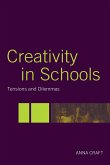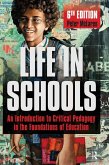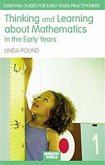Colin Marsh
Key Concepts for Understanding Curriculum
Colin Marsh
Key Concepts for Understanding Curriculum
- Gebundenes Buch
- Merkliste
- Auf die Merkliste
- Bewerten Bewerten
- Teilen
- Produkt teilen
- Produkterinnerung
- Produkterinnerung
Now fully updated, this revised and enlarged fourth edition provides not only a solid grounding in curriculum matters but also covers the latest trends and issues affecting the field.
Andere Kunden interessierten sich auch für
![School Choice and the Impact of COVID-19 School Choice and the Impact of COVID-19]() Michael Guo-BrennanSchool Choice and the Impact of COVID-19171,99 €
Michael Guo-BrennanSchool Choice and the Impact of COVID-19171,99 €![Creativity in Schools Creativity in Schools]() Anna CraftCreativity in Schools177,99 €
Anna CraftCreativity in Schools177,99 €![Life in Schools Life in Schools]() Peter MclarenLife in Schools229,99 €
Peter MclarenLife in Schools229,99 €![Primary Education Primary Education]() Denis HayesPrimary Education132,99 €
Denis HayesPrimary Education132,99 €![Thinking and Learning About Mathematics in the Early Years Thinking and Learning About Mathematics in the Early Years]() Linda PoundThinking and Learning About Mathematics in the Early Years150,99 €
Linda PoundThinking and Learning About Mathematics in the Early Years150,99 €![Educational Change and the Political Process Educational Change and the Political Process]() Dana L. MitraEducational Change and the Political Process168,99 €
Dana L. MitraEducational Change and the Political Process168,99 €![Your Research Project Your Research Project]() Andy HuntYour Research Project166,99 €
Andy HuntYour Research Project166,99 €-
-
-
Now fully updated, this revised and enlarged fourth edition provides not only a solid grounding in curriculum matters but also covers the latest trends and issues affecting the field.
Produktdetails
- Produktdetails
- Verlag: Routledge
- 4. Auflage
- Seitenzahl: 370
- Erscheinungstermin: 5. Dezember 2008
- Englisch
- Abmessung: 240mm x 161mm x 24mm
- Gewicht: 719g
- ISBN-13: 9780415465779
- ISBN-10: 041546577X
- Artikelnr.: 23800151
- Herstellerkennzeichnung
- Libri GmbH
- Europaallee 1
- 36244 Bad Hersfeld
- gpsr@libri.de
- Verlag: Routledge
- 4. Auflage
- Seitenzahl: 370
- Erscheinungstermin: 5. Dezember 2008
- Englisch
- Abmessung: 240mm x 161mm x 24mm
- Gewicht: 719g
- ISBN-13: 9780415465779
- ISBN-10: 041546577X
- Artikelnr.: 23800151
- Herstellerkennzeichnung
- Libri GmbH
- Europaallee 1
- 36244 Bad Hersfeld
- gpsr@libri.de
Colin J. Marsh is Adjunct Professor at Curtin University, Western Australia. He had been involved in teaching at all levels, from primary school to university, over many years. He has written over 30 books on teaching and learning, including in the areas of curriculum planning, development and evaluation.
Part 1: Introduction 1.What is Curriculum 2. Introducing Key Concepts Part
2: Curriculum Planning and Development 3. Using Curriculum Models as a
'Planning Tool' 4. Curriculum Frameworks 5. Objectives, Learning Outcomes
and Standards 6. Selecting and Organising Teaching and Learning Modes 7.
Assessment, Grading and Reporting 8. Curriculum Implementation Part 3:
Curriculum Management 9. Innovation and Planned Change 10. Leadership and
Management and the School Head / Principal 11. School-Based Curriculum
Development 12. School Evaluations / Reviews 13. Curriculum Reform Part 4:
Teaching Perspectives 14. Learning Environments 15. Teacher Appraisal Part
5: Collaborative Involvement in Curriculum 16. Decision-Makers,
Stakeholders and Influences 17. Teachers as Researchers: Action Research
and Lesson Study 18. Parent - Teacher Participation Part 6: Curriculum
Ideology 19. Curriculum Theorizing 20. Gender, Sexuality and the Curriculum
21. Postmodernism and the Curriculum
2: Curriculum Planning and Development 3. Using Curriculum Models as a
'Planning Tool' 4. Curriculum Frameworks 5. Objectives, Learning Outcomes
and Standards 6. Selecting and Organising Teaching and Learning Modes 7.
Assessment, Grading and Reporting 8. Curriculum Implementation Part 3:
Curriculum Management 9. Innovation and Planned Change 10. Leadership and
Management and the School Head / Principal 11. School-Based Curriculum
Development 12. School Evaluations / Reviews 13. Curriculum Reform Part 4:
Teaching Perspectives 14. Learning Environments 15. Teacher Appraisal Part
5: Collaborative Involvement in Curriculum 16. Decision-Makers,
Stakeholders and Influences 17. Teachers as Researchers: Action Research
and Lesson Study 18. Parent - Teacher Participation Part 6: Curriculum
Ideology 19. Curriculum Theorizing 20. Gender, Sexuality and the Curriculum
21. Postmodernism and the Curriculum
Part 1: Introduction 1.What is Curriculum 2. Introducing Key Concepts Part 2: Curriculum Planning and Development 3. Using Curriculum Models as a 'Planning Tool' 4. Curriculum Frameworks 5. Objectives, Learning Outcomes and Standards 6. Selecting and Organising Teaching and Learning Modes 7. Assessment, Grading and Reporting 8. Curriculum Implementation Part 3: Curriculum Management 9. Innovation and Planned Change 10. Leadership and Management and the School Head / Principal 11. School-Based Curriculum Development 12. School Evaluations / Reviews 13. Curriculum Reform Part 4: Teaching Perspectives 14. Learning Environments 15. Teacher Appraisal Part 5: Collaborative Involvement in Curriculum 16. Decision-Makers, Stakeholders and Influences 17. Teachers as Researchers: Action Research and Lesson Study 18. Parent - Teacher Participation Part 6: Curriculum Ideology 19. Curriculum Theorizing 20. Gender, Sexuality and the Curriculum 21. Postmodernism and the Curriculum
Part 1: Introduction 1.What is Curriculum 2. Introducing Key Concepts Part
2: Curriculum Planning and Development 3. Using Curriculum Models as a
'Planning Tool' 4. Curriculum Frameworks 5. Objectives, Learning Outcomes
and Standards 6. Selecting and Organising Teaching and Learning Modes 7.
Assessment, Grading and Reporting 8. Curriculum Implementation Part 3:
Curriculum Management 9. Innovation and Planned Change 10. Leadership and
Management and the School Head / Principal 11. School-Based Curriculum
Development 12. School Evaluations / Reviews 13. Curriculum Reform Part 4:
Teaching Perspectives 14. Learning Environments 15. Teacher Appraisal Part
5: Collaborative Involvement in Curriculum 16. Decision-Makers,
Stakeholders and Influences 17. Teachers as Researchers: Action Research
and Lesson Study 18. Parent - Teacher Participation Part 6: Curriculum
Ideology 19. Curriculum Theorizing 20. Gender, Sexuality and the Curriculum
21. Postmodernism and the Curriculum
2: Curriculum Planning and Development 3. Using Curriculum Models as a
'Planning Tool' 4. Curriculum Frameworks 5. Objectives, Learning Outcomes
and Standards 6. Selecting and Organising Teaching and Learning Modes 7.
Assessment, Grading and Reporting 8. Curriculum Implementation Part 3:
Curriculum Management 9. Innovation and Planned Change 10. Leadership and
Management and the School Head / Principal 11. School-Based Curriculum
Development 12. School Evaluations / Reviews 13. Curriculum Reform Part 4:
Teaching Perspectives 14. Learning Environments 15. Teacher Appraisal Part
5: Collaborative Involvement in Curriculum 16. Decision-Makers,
Stakeholders and Influences 17. Teachers as Researchers: Action Research
and Lesson Study 18. Parent - Teacher Participation Part 6: Curriculum
Ideology 19. Curriculum Theorizing 20. Gender, Sexuality and the Curriculum
21. Postmodernism and the Curriculum
Part 1: Introduction 1.What is Curriculum 2. Introducing Key Concepts Part 2: Curriculum Planning and Development 3. Using Curriculum Models as a 'Planning Tool' 4. Curriculum Frameworks 5. Objectives, Learning Outcomes and Standards 6. Selecting and Organising Teaching and Learning Modes 7. Assessment, Grading and Reporting 8. Curriculum Implementation Part 3: Curriculum Management 9. Innovation and Planned Change 10. Leadership and Management and the School Head / Principal 11. School-Based Curriculum Development 12. School Evaluations / Reviews 13. Curriculum Reform Part 4: Teaching Perspectives 14. Learning Environments 15. Teacher Appraisal Part 5: Collaborative Involvement in Curriculum 16. Decision-Makers, Stakeholders and Influences 17. Teachers as Researchers: Action Research and Lesson Study 18. Parent - Teacher Participation Part 6: Curriculum Ideology 19. Curriculum Theorizing 20. Gender, Sexuality and the Curriculum 21. Postmodernism and the Curriculum








